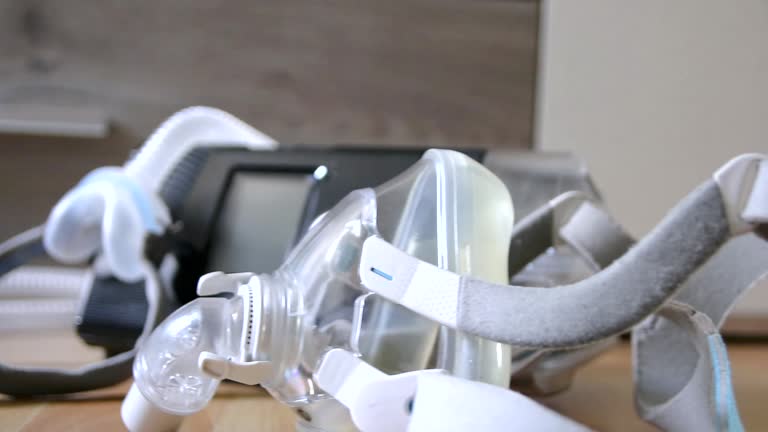Meta Description: Discover how CPAP therapy for sleep apnea works, its benefits, common challenges, and expert tips for success. Learn what I wish I knew before starting my CPAP journey.
Introduction
When I was first diagnosed with obstructive sleep apnea (OSA), I had no idea how much CPAP therapy would change my life—or how challenging the adjustment would be. Like many, I struggled with discomfort, mask leaks, and frustration before finally experiencing the life-changing benefits of consistent CPAP use.
In this article, I’ll share what I wish I knew earlier about CPAP therapy for sleep apnea, including how it works, its benefits, common challenges, and practical tips for success. Whether you’re new to CPAP or considering it as a treatment, this guide will help you navigate your journey with confidence.

What Is Sleep Apnea?
Sleep apnea is a serious sleep disorder where breathing repeatedly stops and starts during sleep. The most common type, obstructive sleep apnea (OSA), occurs when throat muscles relax and block the airway. Symptoms include:
- Loud snoring
- Gasping or choking at night
- Excessive daytime sleepiness
- Morning headaches
- Difficulty concentrating
Left untreated, sleep apnea increases the risk of high blood pressure, heart disease, and diabetes. That’s why effective treatment, like CPAP therapy, is crucial.
How Does CPAP Therapy Help?
CPAP (Continuous Positive Airway Pressure) therapy is the gold standard for treating moderate to severe sleep apnea. A CPAP machine delivers a steady stream of air through a mask, keeping your airway open while you sleep.
The Science Behind CPAP Machines
- Air Pressure: The machine generates pressurized air, preventing throat collapse.
- Mask Fit: A well-fitted mask (nasal, full-face, or nasal pillows) ensures effective airflow.
- Humidification: Many modern CPAPs have heated humidifiers to reduce dryness.
Unlike surgery or oral appliances, CPAP provides immediate relief by maintaining an open airway throughout the night.

Benefits of Using a CPAP Machine
Consistent CPAP use offers life-changing improvements, including:
✔ Better Sleep Quality – Fewer awakenings mean deeper, more restorative sleep.
✔ Increased Energy – No more daytime fatigue or “brain fog.”
✔ Lower Health Risks – Reduces strain on the heart and lowers blood pressure.
✔ Improved Mood – Less irritability and depression linked to poor sleep.
✔ Reduced Snoring – A quieter night for you (and your partner!).
Studies show that long-term CPAP use can significantly improve cardiovascular health and cognitive function.

Common CPAP Challenges & How to Overcome Them
While CPAP therapy is highly effective, the adjustment period can be tough. Here are the most common hurdles—and how to beat them:
1. Mask Discomfort or Leaks
- Solution: Try different mask styles (nasal pillows are less intrusive).
- Pro Tip: Adjust straps for a snug (not tight) fit to prevent air leaks.
2. Dry Mouth or Nose
- Solution: Use a CPAP with a heated humidifier or apply nasal saline spray.
3. Difficulty Falling Asleep with CPAP
- Solution: Wear the mask while reading or watching TV to get used to it.
4. Claustrophobia
- Solution: Start with a minimal mask (nasal pillows) and practice relaxation techniques.
5. Skin Irritation
- Solution: Clean your mask daily and use hypoallergenic mask liners.
Patience is key—most users adjust within 2-4 weeks.

Tips for Successful CPAP Therapy
To make CPAP therapy work for you, follow these expert-backed tips:
✅ Stick with It – Consistency is crucial; even short breaks can reset progress.
✅ Keep Your Equipment Clean – Regular cleaning prevents bacteria buildup.
✅ Try a Ramp Feature – Gradually increases pressure for easier falling asleep.
✅ Track Your Progress – Use a sleep app or CPAP data to monitor improvements.
✅ Work with Your Doctor – Adjust settings if pressure feels too high/low.
Frequently Asked Questions (FAQ)
1. How long does it take to feel the benefits of CPAP?
Most people notice improvements in energy and focus within days, but full benefits may take a few weeks.
2. Can I travel with my CPAP machine?
Yes! Most CPAPs are portable, and airlines allow them as carry-ons.
3. What if CPAP doesn’t work for me?
Alternative treatments like BiPAP, oral appliances, or surgery may be options—consult a sleep specialist.
4. Will I always need CPAP therapy?
For most, CPAP is a lifelong treatment, but weight loss or surgery may reduce severity.
Final Thoughts: Is CPAP Worth It?
Absolutely. While the first few weeks can be challenging, the long-term benefits—better sleep, improved health, and renewed energy—make CPAP therapy life-changing. If you’re struggling, don’t give up! Small adjustments can make a big difference.
Need Help? If you suspect sleep apnea, consult a sleep specialist for a proper diagnosis and personalized treatment plan.
By sharing my CPAP journey, I hope you feel empowered to take control of your sleep health. Remember, every night with CPAP is a step toward a healthier, more energized you!
Did you find this guide helpful? Share your CPAP experiences in the comments!